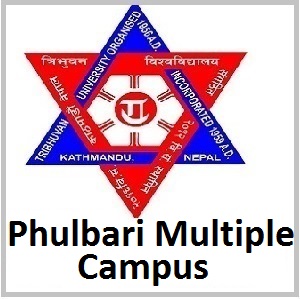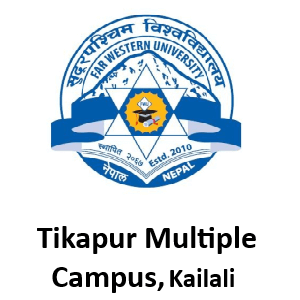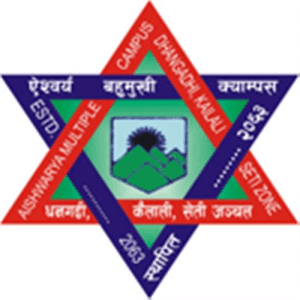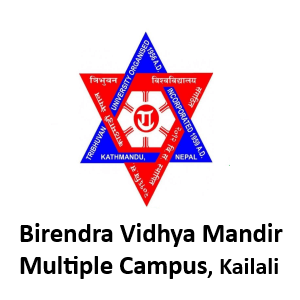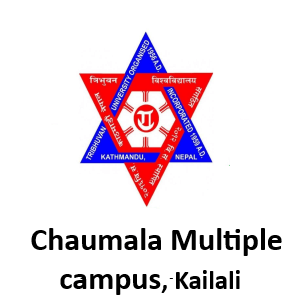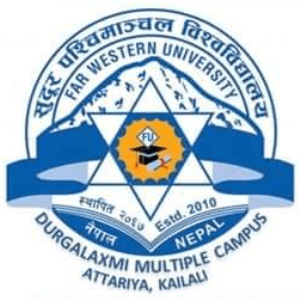Overview
Kailali Multiple Campus (KMC), located in Dhangadhi, within the Kailali district of Nepal, is a well-regarded educational establishment dedicated to delivering high-quality education to the Far Western region. It is one of the prominent constituent campuses of Far Western University (FWU) and is recognized by the University Grants Commission (UGC - QAA Certified community campus) of Nepal. Kailali Campus offers Bachelor's and Master's degree programs in Management, Information Technology, Humanities, Science, Forestry, and Education (BBA, BHM, BBS, BA, BASW, BALLB, BEd, BEdCSIT, P.BEd, BSc, BScCSIT, BSc Forestry, MBA, MBS, MEd, MA, and MBA).
From its inception in 1980 AD, Kailali Campus has developed into a leading community campus, supporting the area's educational environment and empowering numerous students.
History of Kailali Multiple Campus
The narrative of Kailali Multiple Campus is fundamentally linked to the aspirations of the Kailali community for readily available higher education. Before its founding in 1980 AD (2037 B.S.), the region experienced a considerable scarcity of educational pathways beyond secondary school. Students aiming for advanced studies often found it necessary to journey to distant Kathmandu or even across international borders to India.
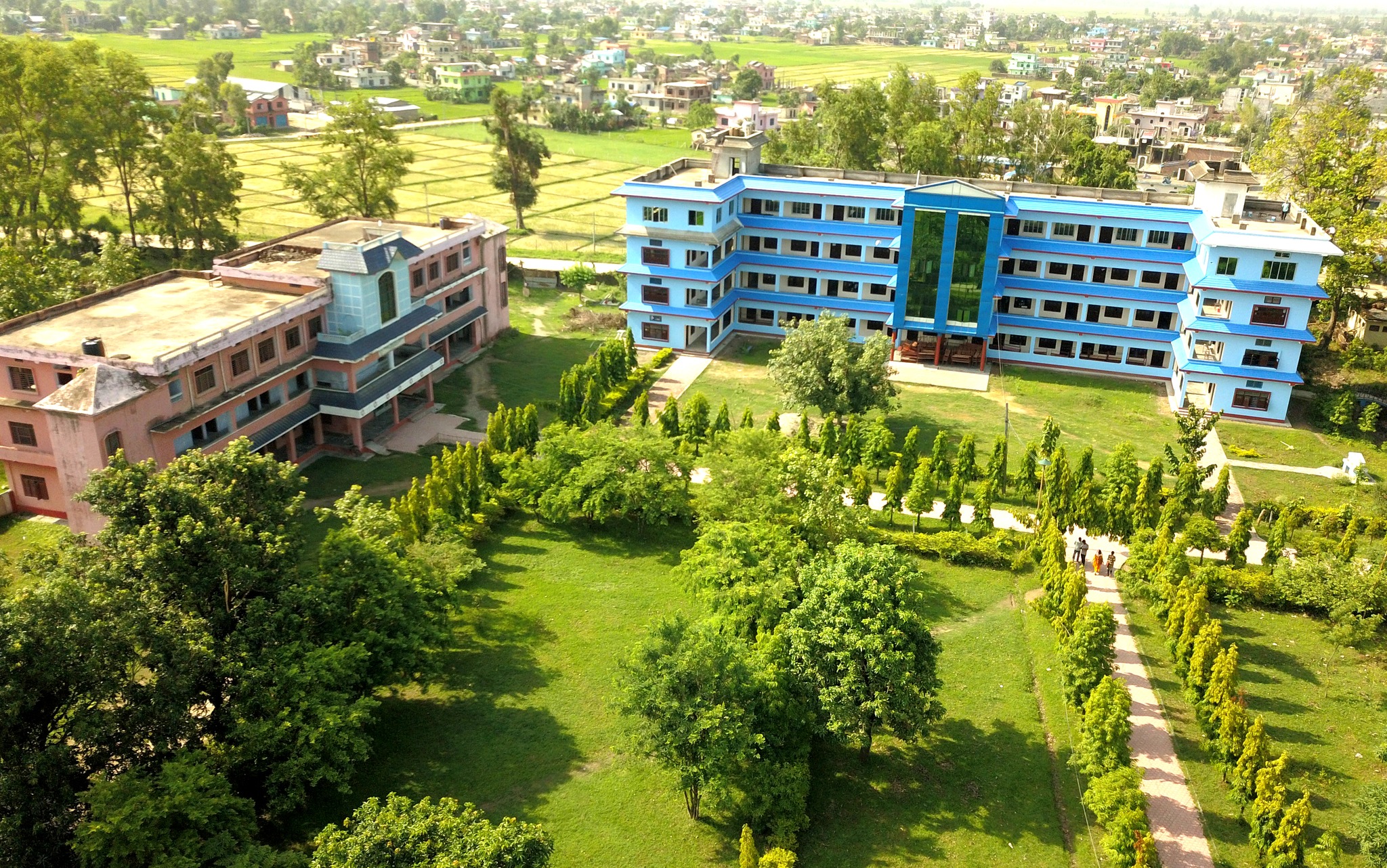
Recognizing this pressing need, the people of Kailali, under the insightful guidance of the then Regional Administrator Ratna Bahadur Gurung, commenced a community effort to establish a campus within the district.
In B.S. 2030, this aspiration began to materialize. Through the guidance of knowledgeable individuals, a suitable site was chosen in Ward No. 7 and 8 of Dhangadhi, encompassing a generous 27 bighas of land characterized by abundant trees and a tranquil atmosphere.
Initially envisioned as a business-focused institution, the campus was appropriately named "Kailali Commerce Campus." Magh 19, B.S. 2037, marked a memorable occasion when the campus obtained formal recognition from Tribhuvan University, Nepal's oldest University, and initiated commerce courses, representing the formal start of commerce faculty instruction.
Responding to the changing requirements of the community, KMC broadened its academic scope. In B.S. 2039, humanities courses were added, enhancing the educational diversity of the campus. The institution expanded, introducing M.B.A.S. level courses in V.S. 2057, followed by M.Ed. programs in B.S. 2064, postgraduate humanities courses in B.S. 2067, and M.B.A.E. programs in B.S. 2073. One-year B.Ed. Courses were introduced in B.S. 2059, and BBM and B.Sc. programs in Science were initiated in B.S. 2070 and B.S. 2071, respectively, reflecting the campus's dedication to offering various disciplines.
A noteworthy turning point in KMC's history occurred in 2021 AD (2078 B.S.). Acknowledging its established standing and input to higher education, Kailali Multiple Campus was incorporated as a constituent campus of Far Western University (FWU). FWU, established in 2010 through the Parliamentary Act, is a government-funded national university in Nepal. This incorporation signified a milestone achievement, strengthening KMC's position within the national higher education structure and opening avenues for more significant government investment, particularly for technical and vocational programs.
The government of Nepal provided the land for the campus, acknowledging the sincere appeal of the people of Kailali. Local contributions mainly provided financial and other essential resources for the campus's establishment. The business sector, social activists, the Kailali District Development Committee, Dhangadhi Municipality, and diverse segments of society generously contributed to the campus fund, focusing on the public ownership and community ethos that underpin KMC's foundation.
In 2018, the Government of Nepal recognized KMC's notable progress and declared it the "best community campus of Nepal," awarding it a monetary prize of Rs. 250,000.
Kailali Multiple Campus is one of Nepal's most substantial community-based campuses. It serves around 9,000 students and continues its tradition of providing accessible and excellent higher education.
Academic Programs
Kailali Multiple Campus provides various academic programs to fulfill students' varied educational goals and the emerging demands of the employment market. Organized within the Faculties of Management, Humanities, and Education, KMC delivers both undergraduate and graduate degrees, all following a semester-based structure.
| Faculty | Undergraduate (4-Year Semester System) | Graduate (2-Year Semester System) |
| Management | Bachelor of Business Studies (BBS), Bachelor of Business Administration (BBA), and Bachelor in Hotel Management (BHM). | Master of Business Studies (MBS), Master of Business Administration (MBA) |
| Science and Technology | General Science, Computer Science and InformationTechnology (BSc CSIT) | |
| Humanities and Social Sciences | English, Nepali, Economics, Development Studies, Sociology, Political Science, Geography and Regional Studies, History and Cultural Studies, Journalism and Mass Communication and Social Work (BSW), and Masters in Development Studies (MDS). | English, Development Studies, Sociology, Economics, Nepali |
| Education | English, Education, Nepali Education, Mathematics, Population Education, Health and Physical Education, Computer Science and Information Technology (CSIT), and Professional Bachelor of Education (P.BEd) | TESOL (English Education), Nepali, Curriculum, Planning and Leadership, Mathematics Education, Health and Physical Education. |
| Law | BA-LLB | |
| Natural Resources Management | B.Sc. Forestry |
Undergraduate Programs (4-Year Semester System):
Faculty of Management:
-
Bachelor of Business Studies (BBS): A foundational program in business administration, providing students with essential management principles and practices. This course is designed to give a strong base for a business career.
-
Bachelor of Business Administration (BBA): A program aligned with industry requirements, concentrating on developing leadership, analytical, and decision-making capabilities crucial for contemporary business settings. Students learn practical skills for today's business challenges.
-
Bachelor of Hotel Management (BHM): A program crafted to cultivate entrepreneurial skills and prepare students for management roles in various hotel industries. This course focuses on innovation and strategic thinking for future leaders.
Faculty of Humanities and Social Sciences:
-
Bachelor of Arts (BA): A program with a broad scope encompassing diverse disciplines within humanities and social sciences, nurturing critical thinking, communication, and analytical proficiencies. Students gain a well-rounded education in arts and social sciences.
-
Bachelor of Social Work (BSW): A program committed to developing professionals dedicated to social justice, community upliftment, and addressing societal issues. Graduates are provided to make a positive impact on society.
-
Bachelor of Arts Bachelor of Laws (BALLB): An integrated program combining humanities and legal studies, preparing students for career paths in the legal profession and related sectors. This course offers a unique blend of legal and humanistic perspectives.
Faculty of Education:
-
Bachelor of Education (B.Ed): A thorough program for future educators, focusing on pedagogical theories, teaching approaches, and classroom administration. This course prepares passionate individuals to become effective teachers.
-
Bachelor of Education in Computer Science and Information Technology (B.Ed. CSIT): A specialized program merging education and technology, preparing teachers to integrate technology into education effectively. Educators learn to use technology to enhance learning experiences.
- Professional Bachelor of Education (P.BEd): This is a one-year professional education program for bachelor's degree holders. P.BEd programs cover nine major subjects: English Education, Nepali Education, Business Management Education, ICT Education, Science Education, Mathematics Education, Social Studies Education, Economics Education, Health Education, and Population Education. It is also known as a One-Year BEd (two-semester program).
Faculty of Science and Technology:
-
Bachelor of Science (BSc): Offered with both Physical and Biology Groups, providing a solid groundwork in scientific principles and practical uses. Students can specialize in either physical or biological sciences.
-
Bachelor of Science in Computer Science and Information Technology (BSc. CSIT): A program that develops computer science, software creation, and information technology expertise. This program meets the growing demand for IT professionals.
Faculty of Natural Resources Management
- Bachelor of Science in Forestry (BSc Forestry): A program focused on sustainable forest administration, conservation efforts, and environmental Science. This course addresses the pressing need for environmental stewardship.
Graduate Programs (2-Year Semester System):
Faculty of Management:
-
Master of Business Studies (MBS): An advanced program building upon the foundations of business studies, exploring specialized management areas in detail. Students deepen their knowledge in specific business areas.
-
Master of Business Administration (MBA): ItAn is a professional degree intended for experienced individuals seeking to improve their leadership and strategic management skills. It is for those aiming for senior management roles.
Faculty of Humanities and Social Sciences:
-
Master of Arts (MA) in Nepali: A program focusing on Nepali language, literature, and cultural heritage. Students gain advanced knowledge of Nepali language and culture.
-
Master of Arts (MA) in Economics: This advanced program provides in-depth knowledge of economic theories and their applications. It is for aspiring economists and policy analysts.
-
Master of Arts (MA) in Sociology: A program exploring social structures, institutions, and the workings of society. Students learn to analyze and understand social dynamics.
-
Master of Arts (MA) in English: A program focusing on English literature, language, and methods of literary study. This program is for those passionate about English literature and language.
-
Master of Arts (MA) in Development Studies: A program focused on understanding development theories, policies, and real-world practices. Students explore solutions for global development challenges.
Faculty of Education:
-
Master of Education (M.Ed.) in English: A specialized program for educators teaching English and practical pedagogy. Educators specialize in English language instruction methodologies.
-
Master of Education (M.Ed.) in Curriculum, Planning, and Leadership: A program focused on curriculum growth, educational planning strategies, and education leadership. Students learn to shape educational systems and lead effectively.
-
Master of Education (M.Ed.) in Mathematics Education: A program specializing in mathematics education and effective teaching methodologies. Educators deepen their expertise in mathematics instruction.
-
Master of Education (M.Ed.) in Health and Physical Education: A program focused on health and physical education pedagogy and practical application. Students learn to promote health and wellness through education.
-
Master of Education (M.Ed.) in Nepali: A specialized program for educators focusing on Nepali language teaching and pedagogy. Educators specialize in Nepali language instruction techniques.
-
Master of Education (M.Ed.) in Educational Planning and Management (EPM): A program focusing on educational administration and management principles. Students develop skills in educational administration and leadership.
Admission Process
Securing admission to Kailali Multiple Campus is a well-organized process designed to ensure that deserving and suitable students are granted opportunities for higher education. The admission guidelines are presented clearly, promoting openness and fairness in the selection process.
Documents Required for Application:
Potential students are required to submit the following documents as part of their application:
-
Recent Passport-Size Photograph: One recent passport-sized photograph shows both ears clearly.
-
SLC/SEE or Equivalent Pass Mark Sheet: A photocopy of the official mark sheet for SLC (School Leaving Certificate) or SEE (Secondary Education Examination) or an equivalent qualification.
-
SLC/SEE Character Certificate: A photocopy of the character certificate from your SLC/SEE institution.
-
+2 Level Transcript Certificate: A photocopy of your transcript from your +2 level education.
-
10+2 Level Provisional Certificate: A photocopy of your provisional Certificate from your 10+2 level education.
-
10+2 Level Character Certificate: A photocopy of your character certificate from your 10+2 level institution.
-
+2 Level Migration Certificate (Original): An original migration certificate is necessary for undergraduate applicants who completed their +2 level from a board different from KMC's.
-
Bachelor-Level Certificates (for Graduate Level): Bachelor's degree certificates are needed for those applying for graduate (master's) programs.
-
Equivalent Certificate (for Foreign Education): Students educated at foreign institutions or boards must provide a mandatory equivalence certificate.
-
Extra Fee for Foreign Education: Students who graduated from a foreign educational institution or board must pay an additional Rs. 500/-.
Eligibility Standards:
Specific eligibility standards are set for each program to confirm students have the required foundational knowledge and academic readiness.
-
For the B.Ed, B.A, and BSW Programs, Applicants must have completed 10+2, Class 12, or an equivalent from a recognized board with a minimum grade of D+ in all subjects. Students are also required to pass the entrance exam conducted by FWU.
-
For BBA, BBS, and BHM: Prospective applicants for the BHM Program must have completed 10+2 or equivalent with a minimum C Grade. Students must also pass the MAT (Management Admission Test) FWU administers. Admission is based on academic merit.
-
For B.Sc Programs: Applicants must have completed 10+2 in Science or an equivalent with a minimum of a 'C' Grade. Students are required to pass the entrance exam conducted by Far Western University.
-
For P.BEd Programs: Applicants must hold a Bachelor's Degree from a recognized University. Students are required to pass the entrance exam conducted by FWU.
-
For M.Ed, MDS, and MA Programs, Applicants must possess a Bachelor's Degree from a recognized University and pass the Far Western University entrance examination.
-
For the MBS and MBA, Applicants must have a passed Bachelor's Degree from a recognized University with at least 45% marks or a Second Division. They must also take the MAT (Management Admission Test), which the FWU conducts. Admission is based on merit.
Admission Steps:
To enroll at KMC, students should follow these steps:
-
Get Application Form: Obtain the application form from the college administration office.
-
Complete Application Form: Fill out the application form, providing all necessary information.
-
Submit Application Form: You must submit the completed application form and the required documents to the college.
-
Entrance Examination: You must take and pass the university or college's entrance examination for programs such as B.Sc, BA, BEd, PBEd, BSW, BBS, BBA, BHM, MBS, M.Ed, MA, and MDS.
-
Merit List and Enrollment: The campus will publish a list based on entrance exam scores (if applicable) and academic qualifications. Students will be enrolled based on merit until all seats are filled.
Campus Life
Kailali Multiple Campus offers a setting that balances academic concentration with a peaceful, engaging student experience. It is situated in Dhangadhi Sub Metropolitan City and benefits from attractive, quiet surroundings ideal for focused learning and personal development.
KMC's location in Dhangadhi, the administrative center of Seti Zone in Far Western Nepal, places it in a region abundant in cultural history and natural beauty. Kailali District's population is diverse, including native Tharus and communities migrated from different parts of the Far-Western Region and other areas of Nepal, creating a lively and multicultural student community.
Despite being situated in a district historically less developed in Nepal, KMC provides a modern and well-maintained campus. The tranquil atmosphere of the 27 Bigha land, initially a dense forest, has been transformed into an enabling learning space while preserving its natural appeal. This creates a unique atmosphere where students can pursue their studies in a calm, inspiring setting away from busy urban centers.
The campus offers spaces and resources for student involvement, cultural events, seminars, and sports, contributing to a complete educational journey.
Focusing on keeping a "good relationship with society and industry" further implies that KMC encourages a campus experience connected to the broader community, likely involving students in community projects and industry interactions, enriching their learning and widening their perspectives.
Faculty and Teaching Approach
The strength of Kailali Multiple Campus lies in its committed and skilled faculty, which is dedicated to providing excellent education and promoting a supportive learning atmosphere. The academic/teaching staff includes a varied team of Professors, Associate Professors, Assistant Professors, and Teaching Assistants from various departments, who bring significant knowledge and experience to the classroom.
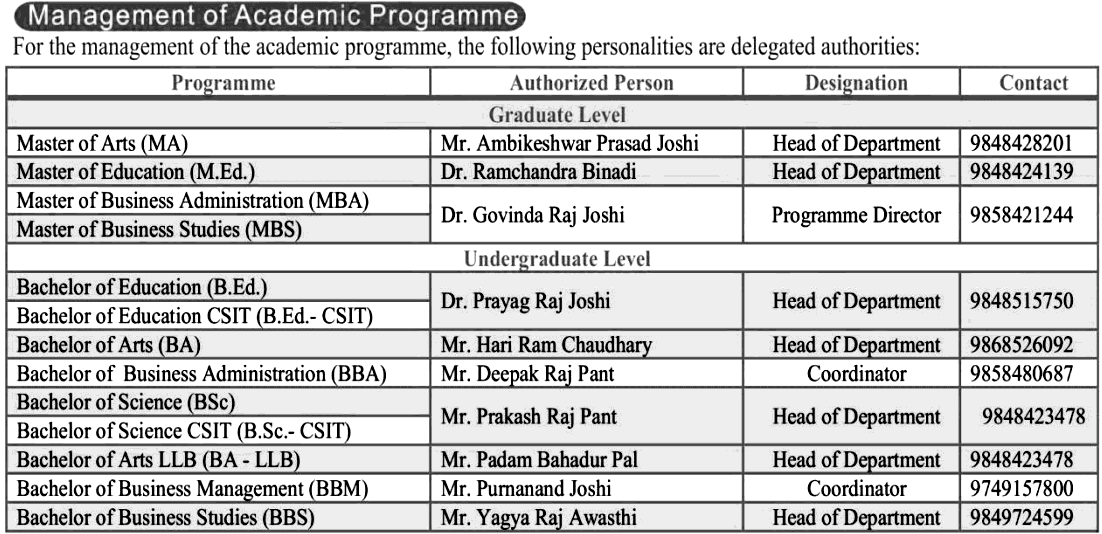
Faculty Structure:
Currently, KMC has a considerable number of teaching staff:
-
Full-time Teachers: 7
-
Associate Professors: 24
-
Assistant Professors: 23
-
Part-time Lecturers: 8
-
Teaching Assistants: 17
-
Total Teaching Staff: 106
Department Leadership:
The document lists department heads for various disciplines, highlighting the breadth of academic knowledge available:
-
English: Prof. Dharma Raj Upadhwa, PhD
-
Mathematics / Statistics: Prof. Dharouna Thakur, PhD
-
Sociology and Rural Development: Assoc. Prof. Tilak Bahadur Bana, MPhil
-
Management: Prof. Topra Raj Bhatti (Campus Chief)
-
Nepali: Prof. Dill Raj Padana
-
Economics: Assoc. Prof. Ambikeabore Prasad Joshi
-
ICT: Asst. Prof. Dipti Bhatta
-
Law: Asst. Prof. Padam Bahadur Pal
-
Finance: Prof. Padam Raj Joshi, PhD
-
Marketing: Prof. Padam Kaul Joshi
-
Zoology: Asst. Prof. Sudha Raj Pant
-
Education: Assoc. Prof. Bhawan Singh Chalamac, PhD
-
Population and Journalism: Assoc. Prof. Mahendra Raj Joshi, PhD
-
Health Education: Assoc. Prof. Prayag Raj Joshi, PhD
-
Geography: Assoc. Prof. Shiva Raj Joshi, PhD
-
Accountancy: Assoc. Prof. Govindia Raj Joshi, PhD
-
Physics: Asst. Prof. Baran Devi Joshi
-
Chemistry: Assoc. Prof. Perna Singh Saad, PhD
-
Botany: Asst. Prof. Gunamadi Pant
Teaching Methodology:
The document notes a change in teaching style at KMC. While traditionally using teacher-focused methods, the campus has adopted modern educational approaches. Installing multimedia projectors in many classrooms indicates a move towards incorporating technology-enhanced teaching and presentation techniques.
Under the semester system, KMC highlights presentation methods and project work, encouraging active learning and student participation. The campus also prioritizes "improving the teaching-learning methods" through various actions, including:
-
Refresher Training for Teachers: Regular refresher training programs are organized to update teachers on the latest educational advancements and teaching skills.
-
Invitation of National and International Experts: Experts from Nepal and abroad are invited as visiting professors, encouraging the learning experience and exposing students to diverse viewpoints.
-
Engaging Teachers and Students in Research Activities: KMC encourages research involving faculty and students, promoting a culture of inquiry and knowledge growth.
-
Providing Career Guidance to Students: Career guidance services are offered to students, assisting them in making informed decisions about their future careers.
-
Encouraging Teachers to Apply Recent Learning and Teaching Methods: Faculty are encouraged to adopt and implement contemporary and innovative teaching methods.
Campus Resources
Kailali Multiple Campus has significantly invested in developing and enhancing its campus resources to offer a supportive and well-resourced setting for students and faculty. The infrastructure includes academic buildings, laboratories, library resources, and facilities for student life.
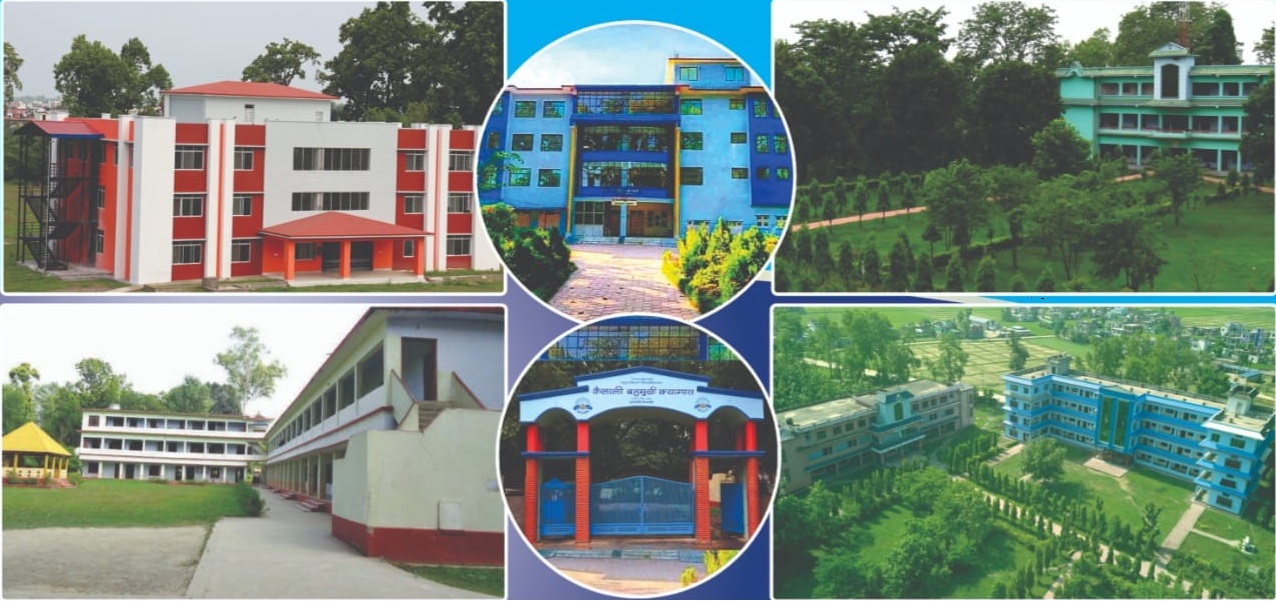
Main Campus Facilities:
-
Buildings: The campus includes 15 buildings, six academic buildings, and nine other structures for various purposes.
-
Classrooms: Ninety classrooms are available, demonstrating the campus's ability to accommodate a large student population.
-
Laboratories: KMC provides 12 laboratories, including six dedicated science laboratories supporting hands-on learning and research across different disciplines.
-
Library: The KMC library is a key resource recognized as the most well-equipped Library in the Sudurpashchim Development Region. It houses over 55,000 books, including textbooks, reference materials, novels, and other reading materials. The Library also subscribes to 44 daily newspapers, both national and local, and various magazines. It features a modern, well-equipped building with seven rooms, including three study rooms and an e-library with 20 computers for accessing online journals and eBooks.
-
Computer Laboratory: A dedicated computer laboratory is available, supporting IT-related courses and providing students with technology access.
-
Science Laboratory: Multiple science laboratories serve the practical needs of science programs.
-
Internet and E-Library: The e-library provides internet access and digital resources, expanding learning opportunities beyond physical books.
-
Seminar Hall: A seminar hall supports academic events, workshops, and presentations.
-
Meeting Hall: Two meeting halls are available for different gatherings and discussions.
-
Student Activity Room: Five student activity rooms offer spaces for student groups, group projects, and informal learning.
-
Canteen: A canteen on campus provides meals and refreshments for students and staff.
-
Hostel Building: A hostel building with two floors and 18 rooms offers housing for students, especially beneficial for those from distant areas.
-
Guest House: A guest house with three rooms is available for visitors and guest faculty.
-
Sports and First Aid: Sports and first aid facilities are available, promoting student well-being and recreation. A playground is available for football, volleyball, cricket, and basketball.
-
Printing and Photocopying: On-campus printing and photocopying services are available for student convenience.
-
Restrooms: A significant number of 28 restrooms (for males and females) are available across the campus.
-
Waiting Room: A waiting room provides a comfortable space for students and visitors.
-
Water Borewell and Water Tanks: A water borewell and four water tanks, each with a 6,000-liter capacity, ensure sufficient water supply.
-
Saraswati Temple: A Saraswati Temple is on campus and reflects cultural and religious aspects.
-
Cycle and Motorcycle Stand: Parking areas for cycles and motorcycles are provided.
-
Power Infrastructure: A 65 kVA generator and a 100 kVA electrical transformer support continuous power supply for campus operations.
-
Furniture and Equipment: The campus is well-furnished with benches/desks (2280 units), chairs (690 units), steel drawers, steel cabinets, tables, white wooden drawers, and plastic chairs. Educational aids and equipment include 138 computers, 69 laptops, eight photocopy machines, 18 printers, two fax machines, 35 multimedia projectors, internet service, 80 internet-connected computers, cameras, CCTV cameras, fans, FM radio/station checker machine, inverters, inverter batteries, cultural program costumes, attendance record machine, and a grass cutting machine.
-
Continued Development: Construction of Science and Technology Block A is ongoing. Block B has already been completed, demonstrating continued infrastructure growth. A One Science Building and a Swabhu Building are also part of the campus infrastructure.
Student Activities and Campus Life
While Kailali Multiple Campus's main aim is academic excellence, the institution also recognizes the value of complete student development, including extracurricular activities and a lively campus experience.
Student Life:
-
Student Activity Room: The presence of five student activity rooms strongly suggests the presence of student groups, clubs, or organizations that use these spaces for meetings, group projects, and other activities. These rooms likely serve as centers for student-led projects and informal learning.
-
Seminar Hall and Meeting Halls: These facilities are not solely for faculty or formal academic events. They often host student seminars, workshops, debates, and club events, offering platforms for students to showcase their talents, engage in discussions, and learn from peers.
-
Sports and Playground: The provision of sports facilities and a playground signifies the importance of physical activity and recreation in student life. Sports are often a key part of extracurricular activities, promoting teamwork, physical fitness, and healthy competition.
-
Cultural Program Costumes: The availability of cultural program costumes in the Library indicates the presence of cultural events and performances on campus. These events are essential for celebrating diversity, promoting cultural understanding, and giving students opportunities to showcase their artistic skills.
-
Attendance Record Machine (in Library): While this machine is mainly for library administration, it also suggests active student involvement with library resources and study spaces, highlighting the academic focus of student life.
ECA Activities
Based on standard practices in educational institutions and the facilities available at KMC, it is reasonable to assume the presence of various extracurricular activities, such as:
-
Student Clubs and Organizations: Likely covering community service, environment, literature, debate, culture, and subject-specific interests.
-
Cultural Events and Festivals: Celebrations of Nepali festivals, cultural days, and possibly inter-cultural events.
-
Sports and Games: Campus-based and inter-college sports competitions in football, volleyball, cricket, basketball, and other sports.
-
Seminars and Workshops: Student-organized symposia and workshops on varied topics complementing academic learning.
-
Debate and Public Speaking Events: Platforms for students to develop communication and critical thinking skills.
-
Community Engagement Activities: KMC's socially responsible values are reflected in its community service projects, outreach programs, and collaborations with local communities.
Scholarships and Financial Support
Kailali Multiple Campus is dedicated to making higher education accessible to many students, including those from less privileged financial backgrounds. To support this aim, KMC provides scholarship opportunities and financial aid to deserving, academically strong students.
Scholarship Opportunities:
KMC has a system for granting scholarships to students chosen by the college management. Students with strong academic records are given special consideration and priority for scholarship awards. The specific types and quantity of scholarships may vary based on college policies and available funds. Despite extra costs, KMC, as a community campus, likely aims to maintain affordable fee structures compared to private institutions, aligning with its mission of providing accessible education.
Endowment Fund for Scholarships:
An endowment fund has been created at the campus specifically for scholarships. The interest earned from this fund is used to award scholarships to students. This indicates a sustainable method for scholarship provision, ensuring long-term financial support for deserving students.
Merit-Based Scholarships:
The focus on "students with strong academic records" suggests that many scholarships are likely awarded based on academic excellence. Students with excellent academic performance and demonstrated potential are prioritized for financial assistance.
Need-Based Scholarships:
Community-based campuses like KMC often consider financial needs when awarding scholarships. KMC may also offer need-based scholarships to students from lower-income backgrounds who show academic promise. To confirm the availability and criteria for need-based scholarships, direct inquiry with KMC would be necessary.
Fee Structure and Expenses:
Fee Structure at Undergraduate and Graduate Level
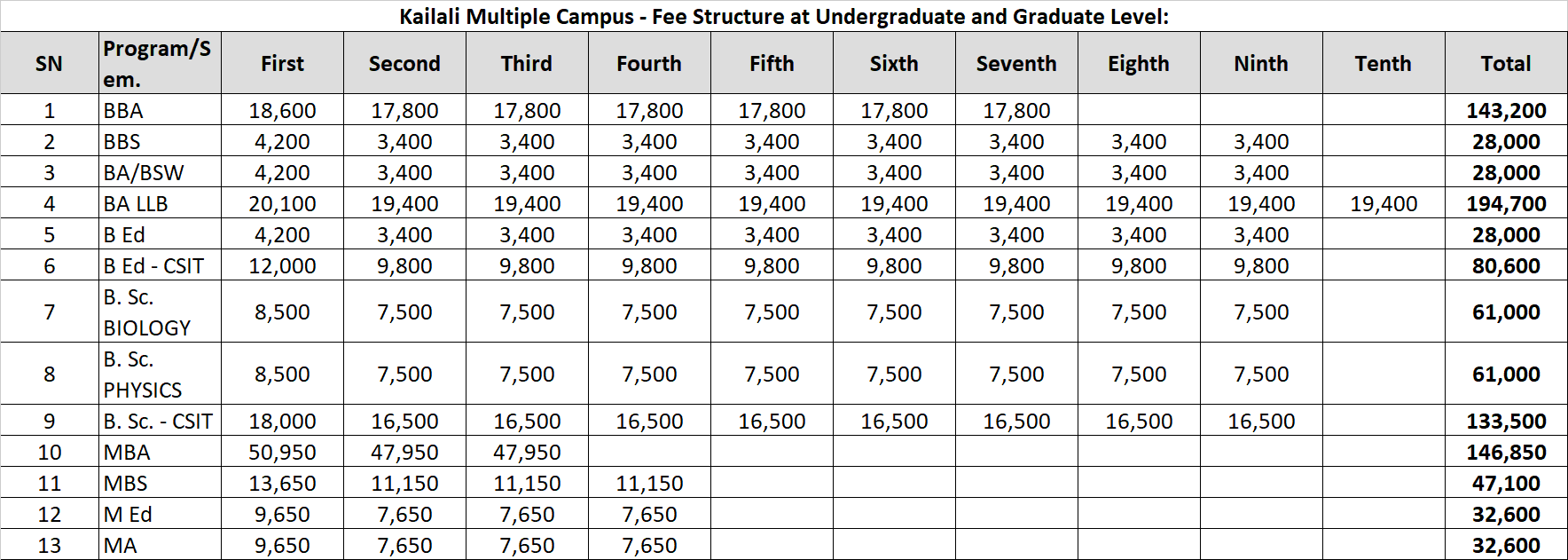
-
Library Deposit (Refundable): The fee structure excludes a library deposit, which is refundable.
-
University Registration Fees, Semester Exam Fees, and Academic Tour Cost: These additional costs are not included in the listed fee structure and would be paid by students.
Financial Accessibility and Support:
Creating an endowment fund for scholarships and focusing on merit highlight KMC's commitment to financial aid. Combined with potentially affordable fee structures, KMC aims to reduce financial obstacles to higher education, enabling students from varied socioeconomic backgrounds to pursue their academic ambitions.
Prospective students seeking scholarship or financial aid information should contact the KMC administration office directly to inquire about specific scholarship programs, eligibility criteria, application processes, and the availability of need-based support.
Achievements and Accolades
Kailali Multiple Campus has earned significant achievements and accolades throughout its history, strengthening its position as a leading educational institution in the Far Western Region and beyond. These honors reflect its dedication to quality education, community service, and institutional excellence.
Significant Achievements and Accolades:
-
QAA Certification: KMC is a certified QAA (Quality Assurance and Accreditation) institution. This respected certification, awarded by Nepal's University Grants Commission (UGC), signifies that KMC has met strict quality standards in its academic programs, infrastructure, and overall institutional operations. Achieving QAA certification is significant, showing a commitment to continuous improvement and adherence to national quality standards. KMC was chosen for participation in the QAA process in 2008 through a national competition and was officially accredited on June 29, 2069 (B.S.).
-
Best Community Campus of Nepal (2018): In 2018, the Government of Nepal recognized KMC as the "best community campus of Nepal" and awarded it a cash prize of Rs. 250,000. This prestigious recognition focuses on KMC's outstanding contribution to community-based higher education, its accessibility, and its effect on regional development.
-
Selection for the Higher Education Reform Project: KMC's selection to participate in the Higher Education Reform Project further highlights its recognition at the national level as an institution dedicated to educational advancement and reform efforts.
-
Incorporation as Constituent Campus of Far Western University (FWU): Becoming a constituent campus of Far Western University (FWU) in 2021 is a historical milestone. This incorporation strengthens KMC's position within the national university system, improving its access to resources, government support, and academic collaborations. It also reflects FWU's recognition of KMC's established reputation and contribution to higher education in the region.
-
Largest Community-Based Campus: KMC has grown to become one of the largest community-based campuses in Nepal, serving around 9,000 students. This scale of operation and student enrollment is a testament to its popularity, accessibility, and the community's trust.
-
Historical Standing and Educational Quality: Throughout its history, KMC has maintained a strong reputation for historical standing and educational quality. It consistently strives for academic excellence and contributes to the educational scene of the Far Western Region.
Why Choose Kailali Multiple Campus?
For potential students seeking excellent higher education in Nepal, Kailali Multiple Campus offers a strong option. It offers a unique combination of academic quality, accessibility, community focus, and a supportive learning setting.
Here are some main reasons why choosing KMC could be a valuable decision:
-
Quality Education at an Affordable Cost: KMC is dedicated to providing quality, affordable education, especially as a community-based campus. The fee structure is likely to be more accessible than that of private institutions, making higher education achievable for students from diverse financial backgrounds.
-
Varied Academic Programs: KMC offers various Bachelor's and Master's degree programs across Management, Humanities, Education, Science and Technology, and Law faculties. This diverse offering allows students to pursue their academic interests and career goals across different fields.
-
Experienced and Skilled Faculty: KMC has a dedicated and skilled faculty that includes professors, associate professors, assistant professors, and teaching assistants. The faculty is dedicated to providing excellent instruction, guidance, and a supportive learning environment. Ongoing faculty development efforts further improve teaching quality.
-
QAA Certified Institution: KMC's QAA certification from the UGC is a significant indicator of quality assurance and academic standards. This certification assures students and stakeholders that KMC follows national quality standards in its educational offerings and institutional operations.
-
Strong Community Focus: As a community campus, KMC is deeply connected to the local community and committed to serving the educational needs of the Far Western Region. This community focus results in a supportive and inclusive campus environment.
-
Peaceful and Enabling Campus Setting: Located in Dhangadhi, KMC offers a picturesque and peaceful campus setting, ideal for focused learning and personal well-being.
-
Well-Developed Infrastructure and Facilities: KMC has invested significantly in developing its campus infrastructure, providing well-equipped classrooms, laboratories, libraries, computer labs, sports facilities, and other amenities essential for a quality learning experience.
-
Scholarship Opportunities: KMC provides scholarships to academically strong and deserving students, making higher education financially accessible to a broader student population. The endowment fund dedicated to scholarships shows a long-term commitment to financial aid.
-
Historical Standing and Recognition: Since 1980, KMC has established a strong reputation for historical standing and quality education. Recognitions like "Best Community Campus of Nepal" and incorporation into FWU further validate its position in the higher education sector.
-
Contribution to Regional Progress: By providing accessible and quality higher education in the Far Western Region, KMC plays a crucial role in human resource development, skill enhancement, and overall regional progress. Students who graduate from KMC are well-prepared to contribute to improving their communities and the nation.
Conclusion
Kailali Multiple Campus exemplifies the strength of community vision and sustained dedication to building a vital institution for higher education. From its beginnings as the Kailali Commerce Campus to its current status as a constituent campus of Far Western University, KMC has consistently grown and adapted to meet the emerging educational needs of Nepal's Far Western Region.
KMC is dedicated to providing accessible, affordable, and quality education through its diverse academic programs, skilled faculty, well-developed infrastructure, QAA certification, and scholarship provisions.


